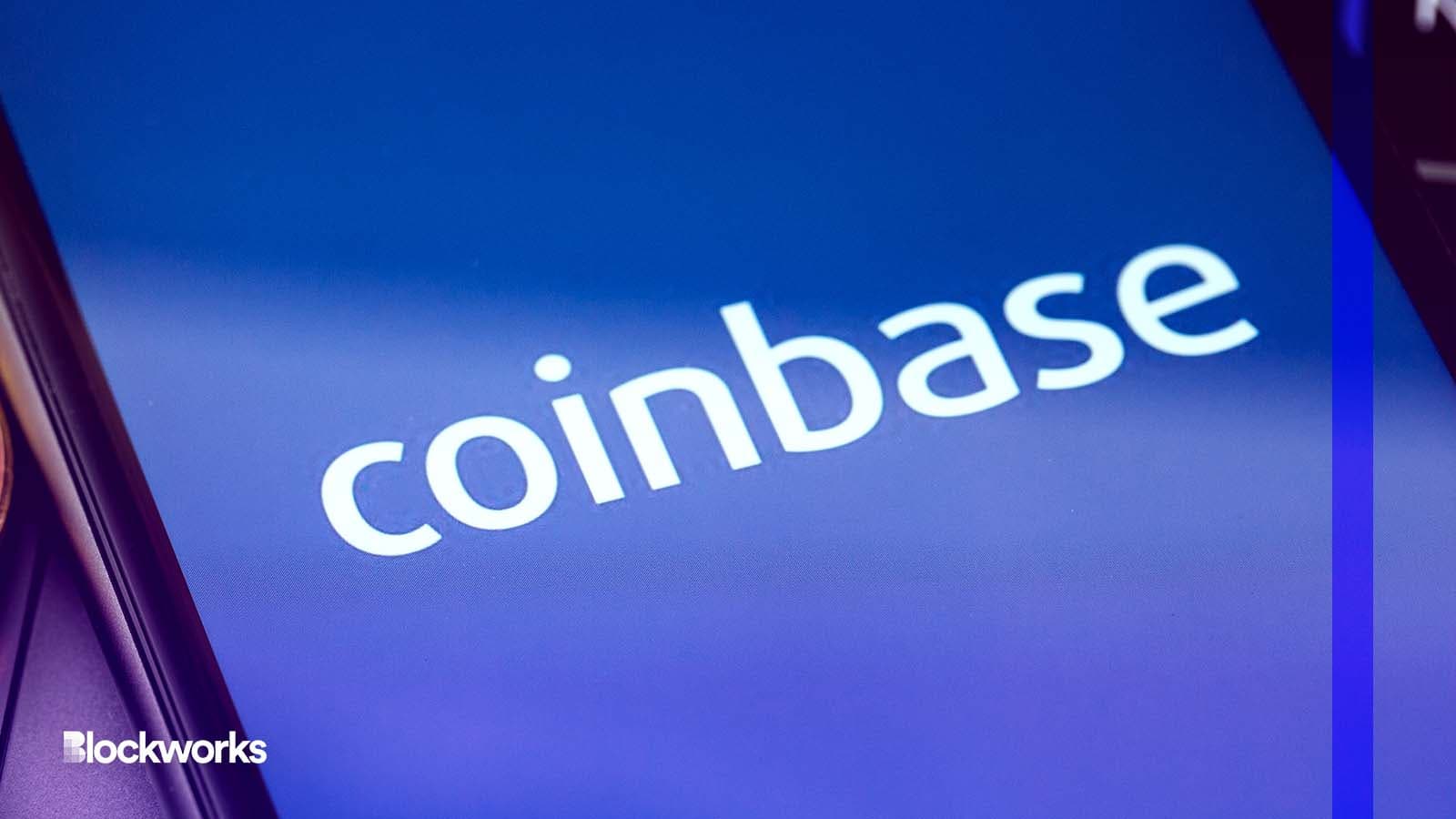Is Coinbase Quitting the US?
Expected crypto regulations in Europe could make the region a good home for the exchange, though one industry watcher said a move is unlikely

Primakov/Shutterstock modified by Blockworks
Two years after becoming a public company in the US, Coinbase has indicated that its exit from the country is not out of the question.
While many agree that other regions are set to offer more crypto regulatory clarity than the US, some industry watchers are split about the likelihood that the country’s largest crypto exchange could exit its current home.
CEO Brian Armstrong said during the Innovate Finance Global Summit Tuesday that as crypto regulation in the US remains unclear, “anything is on the table, including relocating,” The Telegraph reported.
The executive reportedly added that it could seek to invest outside of the country where it is currently based, noting that the UK is Coinbase’s second largest market.
A Coinbase spokesperson declined to comment.
The remarks come as US regulators have ramped up enforcement actions against crypto companies in recent months.
Read more: No Laws, No Policy, No Clarity: The Parlous State of Crypto Regulation
In a shareholder letter published in February, the company noted that 2023 is likely to be a crucial year for crypto policy that could help or hurt the industry, adding that the company was “preparing for both eventualities.”
The SEC last month served Coinbase with a Wells notice — an alert that typically precedes an enforcement action — related to alleged securities violations. The company said in a statement that it is “confident in the legality of [its] assets and services,” and Armstrong later said Coinbase would be “happy to go to court” if necessary.
Could Coinbase actually move? And where?
Owen Lau, an executive director at Oppenheimer & Co., said that Europe would be a better home for Coinbase, which he noted is “being dragged by [an] unfair and uncertain regulatory environment in the US.”
In the UK, the proposed Financial Services and Markets Bill (FSMB), which includes regulations for both stablecoins and crypto assets more broadly, is still working its way through lawmaker reviews.
Meanwhile the European Parliament is set to discuss the Markets in Crypto Assets Regulation (MiCA) this week — a long-awaited law for which a vote is imminent.
Coinbase lauded the EU’s MiCA framework in its February letter, the significance of which it said “cannot be understated.” The UK’s plans for regulating crypto asset service providers, the company added, “appears to be the first step in the UK executing on its commitment to become a global crypto hub.”
“MiCA will likely come into force in 2024, which will provide sensible regulatory clarity, investor protection and developer confidence to build innovative blockchain solutions,” Lau told Blockworks. “For a smooth transition, it would be better after the final vote on MiCA and see how their operation goes in Europe.”
Morningstar Analyst Michael Miller said Coinbase’s core strategy of being located in a well-regulated environment, as well as its current presence in the UK, could make that region a potentially attractive place to move to.
He added, however, that a relocation isn’t too likely, noting that it wouldn’t resolve Coinbase’s regulatory issues.
“The company received 84% of its revenue from US customers in 2022 and being located outside of the US doesn’t really change the regulatory environment for servicing that user base,” Miller explained. “Coinbase could split its platform like we’ve seen other cryptocurrency exchanges do, but I don’t see what that resolves from a functional basis.”
Moving overseas
Coinbase has made international expansion as a top priority, Lau said.
Though the crypto exchange revealed in January that it would halt operations in Japan, Coinbase has since expanded offerings in Brazil and Singapore.
Armstrong’s comments about potential relocation are similar to those made by Kraken co-founder Jesse Powell in April 2021. The executive said in an interview with Fox Business News at the time that Kraken was considering leaving the US due to a lack of regulatory clarity, noting that Tokyo, the United Arab Emirates or the UK could be good homes for the company.
Crypto exchange Bittrex revealed last month it was set to shut down its US operations. CEO Richie Lai accused US policymakers and regulators, in a statement, of being “seemingly committed to extinguishing the industry and sending it overseas.”
The share of US-based blockchain developers is also shrinking, according to a report published last month by venture capital firm Electric Capital. The study labeled “clear and supportive regulations” for the industry as keys to attracting such professionals to the country going forward.
Get the news in your inbox. Explore Blockworks newsletters:
- The Breakdown: Decoding crypto and the markets. Daily.
- 0xResearch: Alpha in your inbox. Think like an analyst.






